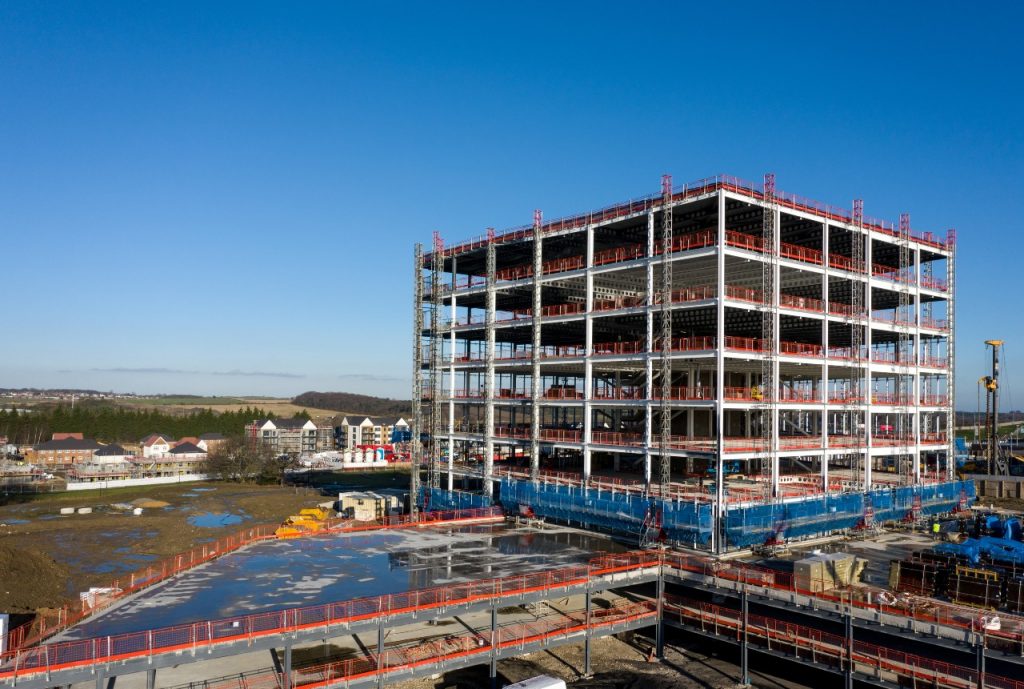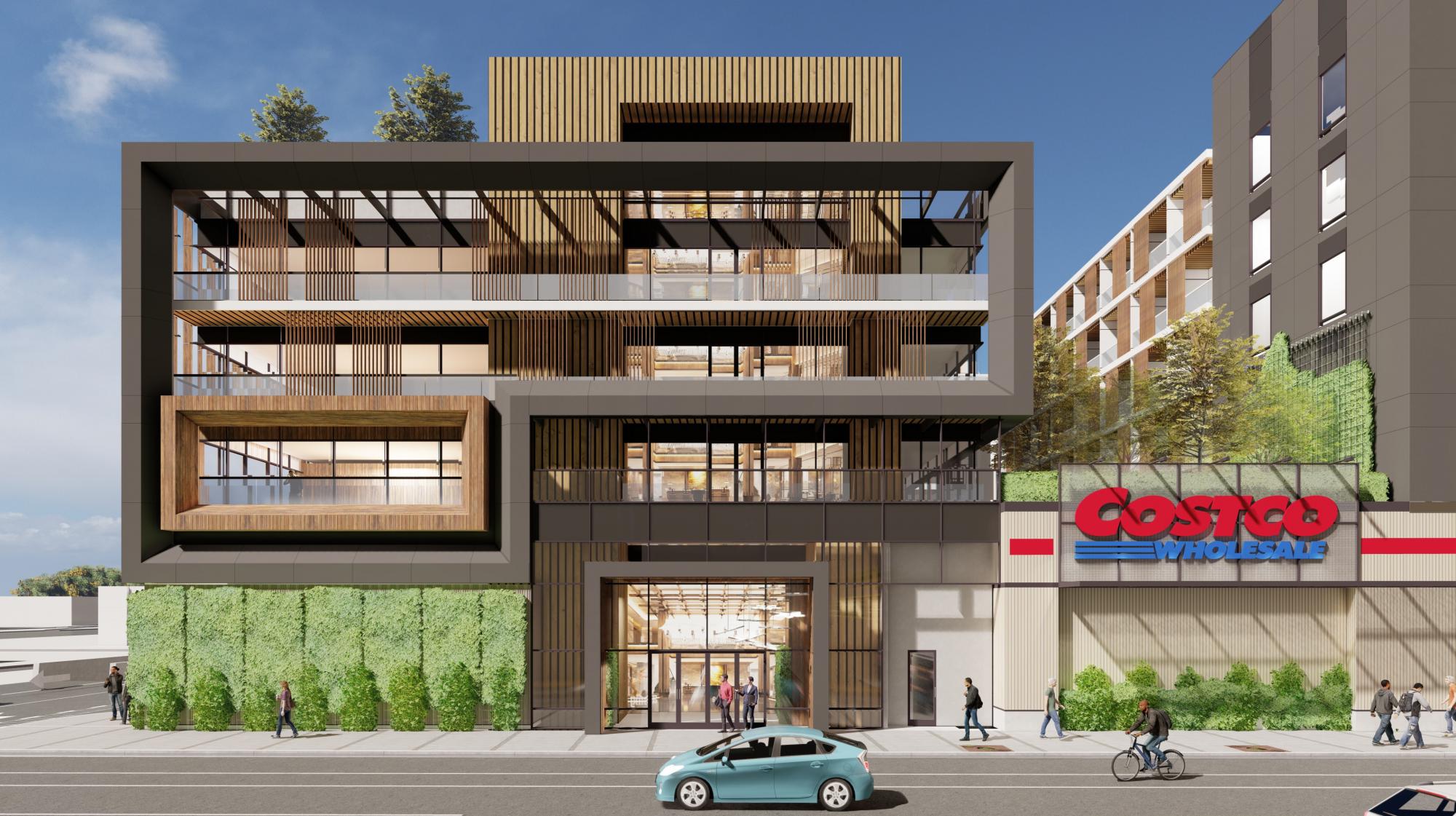The plethora of commercial lease types in this industry can be dauntingly complex. That’s why it’s vital that you have at least a cursory understanding of the most common commercial leases. And if you don’t have an understanding, at least have the assistance of an expert who does. (We just so happen to know a few – wink wink!) Commercial leases are typically strict and can vary greatly, so take this opportunity to get to know some of the most common commercial lease types.
Full Service Lease: As Comprehensive as a Commercial Lease Gets

Chances are good that if you encounter a full service lease, it’s because you’re working with a multi-tenant property. Rather straightforward when compared to several commercial lease varieties, the full service lease does what it claims. Typically, this means it includes the standard rental rate, real estate-related taxes, cleaning, utilities, and maintenance. Most full service leases even include the insurance!
Gross Lease: Familiar to Anyone Who’s Rented Residential Property
The gross lease should be largely familiar to anyone who’s rented an apartment or other residential property. Retail spaces, industrial properties, and independently standing office buildings popularly use these types of commercial leases. With a gross lease, the landlord is usually responsible for a slew of expenses including utilities, taxes, and general maintenance. However, they regularly pass on these expenses to the tenant by setting the base rent accordingly. Therefore, the landlord needs to accurately assess or estimate these expenses.
Modified Gross Lease
People often refer to this variation of the gross commercial lease as a modified net lease. In this type of commercial lease, the lessor and lessee negotiate terms to determine who’s responsible for which expenses. The parties discuss terms and agree upon a base rate. This base rate remains a fixed, reliable amount, even if expenses surge or drop.
Ground Lease: A Commercial Lease That is Exactly What It Sounds Like

A ground lease is surprisingly literal. The tenant leases the land itself, eventually erecting a structure there using their own funding. Obviously, the land is leased for a long period of time. So, what happens if the tenant decides to vacate the property? In most ground lease agreements, the building would become the property of the landowner. Not a bad deal for the landlord!
Net Lease: Like a Piecemeal Commercial Lease
The net lease is easily one of the most variable types of common commercial leases. We’ll get into some typical variants in a moment, but let’s get a firm understanding of a base net lease first. With a net lease, the tenant isn’t just responsible for the base rent. They’re also required to cover a fixed portion of the expenses. These can include anything from taxes to insurance to maintenance fees. The trade off is that the base rent for a net lease is usually lower than the base rent for a gross lease.
Single Net Lease
After the tenant and landlord reach an agreement, the tenant agrees to pay base rent, utilities, and a portion of property taxes. They may also be required to pay additional expenses if agreed upon. The lessor is still responsible for paying the remainder of the building expenses.
Double Net Lease
This commercial lease mirrors the single net lease with the addition of the tenant’s additional responsibility to pay a portion of the property tax. Meanwhile, the landlord picks up the burden of maintenance of any common areas of the property.
Triple Net Lease

And here we have a variation so common, it’s even more widely known than the standard net lease! With a triple net lease (often referred to simply as an NNN), the tenant covers pretty much every expense connected to the property. Taxes, insurance, operations, common area maintenance… the tenant pays for all or at least a portion of these. They’re also still responsible for their base rent. Therefore, you can expect landlords to love a good triple net lease.
The tenant’s fees can also include new taxes as a result of a leased property transferring ownership, security fees, renovations… the list goes on. Yet, there is one aspect of a triple net lease that favors the tenant. The tenant holds the right to review all of the operating expenses which are normally privately held by the landlord. And if a discrepancy is discovered? Then the savings revert to the tenant.
Absolute Triple Net Lease
How do you make a triple net lease even more extra? By passing the entire financial responsibility of a property over to the tenant. Thus we have the absolute triple net lease. In most cases, a tenant would be better off just outright purchasing a property than signing an absolute triple net lease. So why do they do it? It’s actually a valuable commercial lease type for those rare tenants who want to own a building, but either can’t or won’t commit to a purchase. While triple net leases are among the most common commercial lease types in the industry, absolute triple net leases are exceedingly rare.
Shopping Center Lease: Dipping Into Sales

As the name implies, this is a favored type of commercial lease for shopping malls. It can also be referred to as a percentage rent lease. In a shopping center lease, the tenant covers their base rent for their designated retail area with an agreed upon percentage of the tenant’s gross sales. In addition, it’s common for tenants to cover maintenance for common areas, marketing, managerial costs, utilities, and taxes.
While this is by no means an exhaustive inventory of commercial lease types, these are the most common you’re likely to see. However, with variations upon variations, it’s easy to see how even two of the same type of lease can be radically different. Recognizing the base similarity of each common commercial lease type can help you to recognize your options. But as always, it pays to have a seasoned professional at your side through the negotiation process. If you’re interested in learning about which lease works for your specific scenario, reach out to one of our agents today!





One Comment on “From Gross Lease to Triple Net Lease: Common Commercial Lease Types”